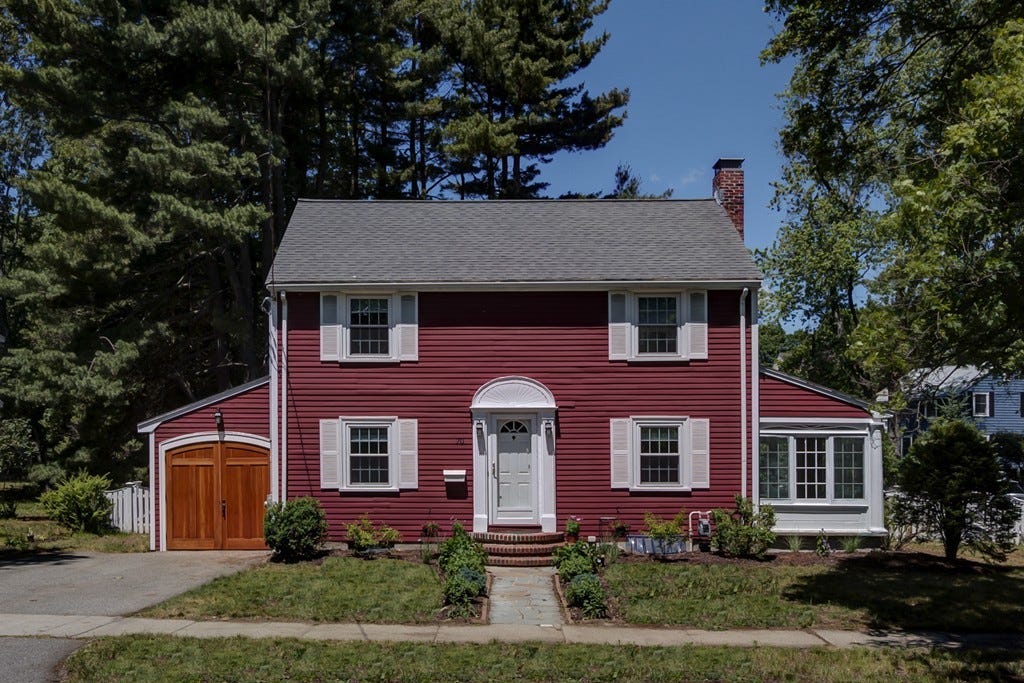01.06.2025
Rail-Link supporters must face political reality head on | Anti-woke celebrity comes to Moulton’s rescue | Boston’s tax chief lives in the suburbs | Quick hits |
News tips? Story ideas? Email us at sbvanvoorhis@hotmail.com
Boston taxman on the hot seat: One of the city’s top officials, responsible for setting tax rates for businesses and homeowners, does not live in the Hub himself
The city official at the very center of a heated Boston battle over rising taxes owns a million-dollar house in a tony suburb, Contrarian Boston has learned.
Nick Ariniello, head of Boston’s assessing department, is listed as the owner of a nearly $1.1 million 1940s-era colonial in Winchester, a review of real estate records show.
And maybe most surprising of all, Ariniello has been able to commute to his key, $157,500-a-year City Hall post from the suburbs all the while staying - or at least seeming to stay - on the right side of Boston’s residency requirement for city workers.
How? Ariniello has held union positions within the assessing department since he began work there in 2006, with a contract provision granting a waiver of the residency requirement after a decade, according to a city spokesperson.
However, why that waiver would still cover Ariniello now that he is actually managing the department - albeit as an interim commissioner, only because he does not live in the city - is an open question.
Given his role now as a department head, one would think that the city’s tax chief should have to get a waiver from the city’s Residency Compliance Commission, which he has not done since becoming interim commissioner in 2019. And even then, it would have only been valid for three years.
“It’s absurd,” said one city insider, noting that Ariniello is making decisions on tax rates for homeowners and businesses, “yet hasn’t paid a dime in taxes in the city himself.”
The controversy comes as Ariniello’s performance as Boston’s tax chief comes under closer scrutiny after the humiliating collapse last month of tax hike plan pushed by his boss, Mayor Michelle Wu.
Wu spent months wrangling with the Legislature over a proposal that would head off a potential $1 billion revenue gap over the next few years as office tower values crumble amid the shift to remote work.
In particular, Wu lobbyied for a green light from the State House to effectively double down and push more of the city’s overall tax burden onto commercial properties than is allowed under state law.
In fact, Wu repeatedly warned that without the shift, Boston homeowners would instead be forced to pick up the slack in the form of huge increases to their tax bills.
But after lining up reluctant support from business groups, the mayor stunned everyone last month when she announced the numbers were not as dire as the city - and the assessing department under Ariniello - had previously forecast.
Support in the Legislature for the plan fizzled, while raising questions as to how the tax numbers could have shifted so dramatically in a matter of weeks.
Did someone get the numbers wrong? Or was it a case of the Wu administration putting its own, doomsday spin on the tax numbers in order to win state approval for a controversial tax hike plan that had significant opposition from the business community?
Ariniello’s future as Boston’s tax chief could hinge on the answer to those questions.
Hang in there, Seth: Moulton’s hotter-than-lava comments on trans athletes garners support from anti-woke celebrity crusader
Keep reading with a 7-day free trial
Subscribe to Contrarian Boston to keep reading this post and get 7 days of free access to the full post archives.



